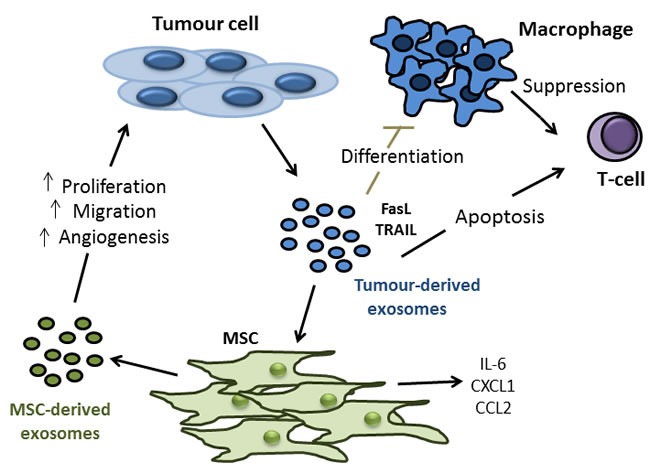Figure 4. Tumour- and MSC-derived exosomes as potential mediators of colon tumour cell proliferation, migration, angiogenesis and modulation of anti-tumour immune response.

Experiments involving transwell systems and conditioned medium have shown us that soluble factors released by MSCs can promote all aspects of tumourigenesis including tumour cell proliferation, migration and angiogenesis. Interestingly, more recent experiments involving the treatment of tumour cells with exosomes isolated from MSCs have produced similar results. Exosomes are vesicles released by a cell which are between 30 and 100nm in diameter, making them small enough for easy uptake by target cells. Exosomes released from a cell can contain many different components including proteins, lipids, RNA and miRNA. It is for these reasons that exosomes could represent a key under-explored aspect of tumour-MSC interactions. In addition to MSC derived exosome effects on tumour cells, it has now also been shown that exosomes derived from tumour cells can alter the biology of MSCs, and indeed immune cell components. Tumour derived exosomes can express FasL and TNF-related apoptosis inducing ligand (TRAIL), thus inhibiting macrophage differentiation and inducing t-cell apoptosis. In terms of the effects of tumour released exosomes on MSCs, data to date is limited. Early evidence does show however, that MSCs secrete (IL)-6, chemokine ligand (CXCL)-1 and C-C chemokine receptor (CCR)-2 upon treatment with tumour derived exosomes, all factors which have been implicated in cancer progression, metastasis and poor prognosis.
